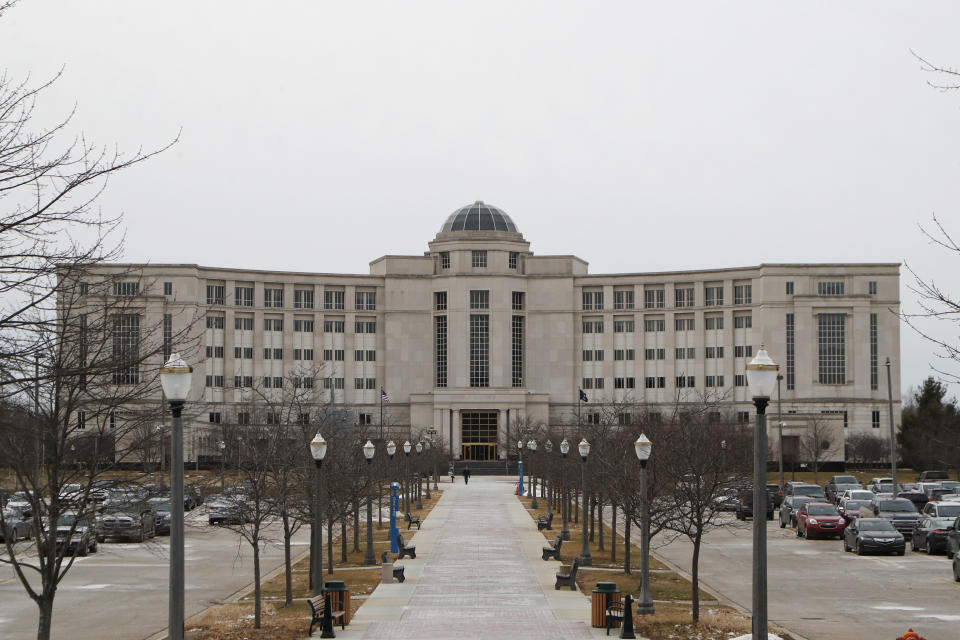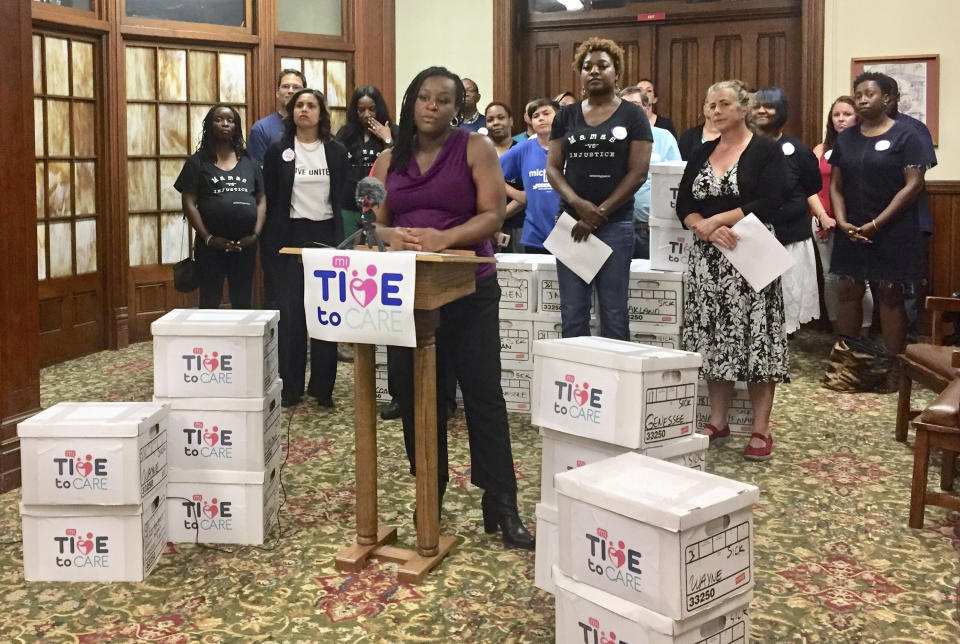Michigan ballot law changes struck down by a 2nd court
LANSING, Mich. (AP) — Another Michigan court has vacated changes to the state's ballot drive law, declaring that a geographic limitation on collecting petitions unconstitutionally takes power out of the hands of voters.
The state appeals court, in a 2-1 decision Monday, affirmed a lower judge. It struck down the 15% cap on signatures that can be used from any one of Michigan's 14 congressional districts and nullified a new requirement that each petition indicate whether a circulator is paid or a volunteer.
The appellate judges went further than the Court of Claims and also invalidated a requirement that paid gatherers file an affidavit with the secretary of state, saying “it can be seen as imposing a significant burden on the right of political speech protected by the First Amendment.”
The ruling was the second in four months to negate major parts of the law that was enacted by Republican-led Legislature and signed by then-Gov. Rick Snyder in a contentious lame-duck session in 2018. They acted a month after voters passed three Democratic-backed proposals to legalize marijuana for recreational use, curtail the gerrymandering of congressional and legislative districts, and expand voting options.
Judge Deborah Servitto, in an opinion joined by Michael Gadola, said delegates to the 1961 state constitutional convention voted down a proposed 25% geographic requirement.
“Setting a 15% geographic limitation serves to take power out of the hands of the people and requires, in essence, a pre-vote of agreement in a certain number of congressional districts as to whether or not a matter should be put to a general vote,” she wrote. “This places the cart before the horse and unduly burdens the initiative and petition process.”
The House and Senate could appeal to the Michigan Supreme Court.
Judge Mark Boonstra partly concurred and partially dissented. He agreed that the 15% limit and the affidavit requirement are unconstitutional, but disagreed with the majority's findings that the Legislature has no standing in the case and that the check-box rule is illegal.
The lawsuit was filed in May by the League of Women Voters of Michigan, a ballot committee and voters who said lawmakers could not amend the constitution with legislation and contended the 15% requirement would dramatically increase the cost and difficulty of mounting successful citizen petition campaigns. The geographic restriction prevents ballot committees from solely targeting the most heavily populated, more Democratic urban areas.
The law is backed by business groups and GOP legislators who have said it adds transparency and accountability to the petition-gathering process and ensures statewide input earlier on ballot drives funded by out-of-state interests.
Democratic state Attorney General Dana Nessel previously said the 15% limit and other portions of the law are unconstitutional. State election officials have complied with her opinion for the 2020 cycle while the separate suit is considered in the courts.
To make the ballot in 2020 or 2022, groups proposing a constitutional amendment must submit 425,000 signatures. The threshold is 340,000 for an initiative and 212,000 for a referendum.
___
Follow David Eggert on Twitter: https://twitter.com/DavidEggert00


